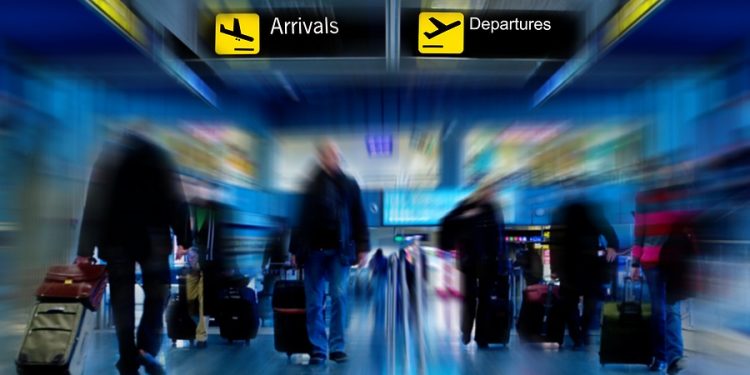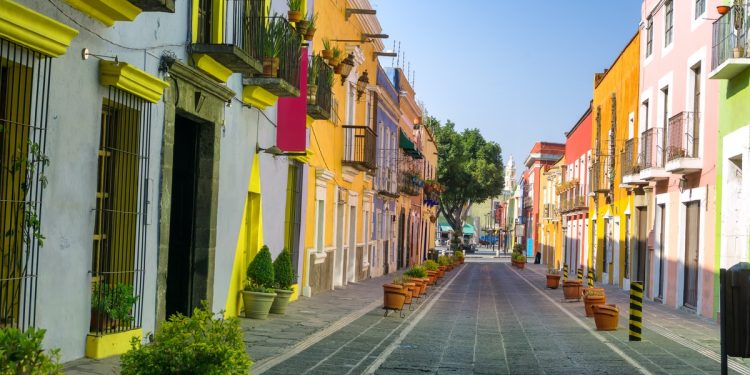This guide to safety in Mexico provides situational updates and practical advice for visitors to, and foreign residents living in, Mexico
Keep abreast about safety issues in Mexico with our guide which offers practical and sensible advice based on currently-reported situations.
Last Updated: December 2021
See Also: Travel Health in Mexico
Safety-Related Blog Articles
Drug-Related Violence
Sensible Safety Precautions
Activity and Extreme Sports Safety
Mexico Business Travelers Safety
Cash and Valuables
Petty Crime in Mexico
Avoiding Scams
Safety on Mexico’s Roads
Government Travel Advice Sites
Safety in Mexico: current situations
Drug-related violence
Turf wars between major Mexican drug cartels vying for control of trade routes to U.S. as well Mexican narcotic retail markets can spark waves of drug-related violence in some areas of Mexico and, during flare-ups, this creates a flow of dramatic news headlines. This type of violence tends to be concentrated in specific areas while other regions remain virtually unaffected.
Government consulates are advising travelers to exercise caution when traveling in northern states of Baja California, Chihuahua, Sinaloa, Sonora, Coahuila, Nuevo León, Tamaulipas, Tampico, Durango, Zacatecas where drug-related flare-ups continue to be prevalent on occasions.
It’s worth noting that popular tourist centers in affected states are usually safe to visit: for examples, Mazatlán in the state of Sinaloa; Morelia, Patzcuaro and the Monarch Butterfly sanctuaries in the state of Michoacán; and Taxco, Acapulco and Ixtapa-Zihuatanejo in the state of Guerrero.
Proportional perspective
Most of the violence is played out between drug gangs in only a small fraction of Mexico’s 2,438 Municipalities with foreign residents and tourists by-and-large unaffected.
Visitors to Mexico
Mexico continues to be one of the most visited countries in the world and the US-Mexico border is the world’s busiest and most transited land border in the world.
The majority of visits to Mexico pass-by trouble-free and the violence brought about by the ongoing drug cartel activity has left tourists, foreign business visitors and foreign residents mostly unaffected.
Violent crime in Mexico
Violent crime committed against visitors and foreign residents is rare in Mexico. Petty crime, e.g. pick-pocketing and bag grabbing, can be an issue in some areas; see section below on Petty Crime in Mexico for details. Common sense and being alert to your surroundings will minimize any risks.
Published statistics
Notwithstanding the media headlines which sometimes have a tendency to portray Mexico in a less-than-ideal light, published statistics and shared experiences from foreign residents and visitors demonstrate that most of Mexico remains a relatively safe place for tourists, visitors, business travelers, and foreign residents.
See also: 6 Reasons Why Mexico Is Safer Than You Think
Drug-related violence in Mexico
The drug-related violence that began a few years ago continues to attract news headlines nationally and internationally during event flare-ups.
It is estimated that 9 out of every 10 homicides committed in Mexico comprise of gang members fighting each other in the violent drug-turf disputes taking place.
Most of the violence currently happening in Mexico is concentrated in small areas of the country. Although news stories have a tendency to present drug-violence as a “Mexico wide” issue, studies have shown that the majority of homicides take place in a small fraction of the country’s 2,438 municipalities.
Places Affected
Of late, waves of drug-related violence flare-ups have been in the states of Chihuahua, Sinaloa, Sonora, Coahuila, Nuevo Leon, Tamaulipas, Durango, Baja California, Zacatecas in the north of the country. Not all areas in all these states are affected and popular tourist places are generally safe to visit, but caution should be exercised on your travels in these states to minimize any risks.
Sensible safety precautions
Taxi travel: only use authorized “Sitio” (taxi ranks) in Mexico City— avoid hailing a taxi from the street in the capital, or use a tele-cab or use internet-cab service like Uber or Cabify for your taxi rides. See the complete guide to Traveling by Taxi Mexico for full details.
Dress down: don’t walk around dripping gold or wearing clothes and jewelry which might bring undue attention to you or others with you.
Beware of scammers: scams and scammers targeted at tourists and foreign residents appear to be on the increase. See “Avoiding Scams” below.
Cash machines (ATMs): avoid withdrawing cash from ATMs at night; be vigilant when you are withdrawing cash; use ATMs in well-populated areas or inside shopping malls. See “Cash and Valuables” below.
Bank-card cloning / skimming: bank card (Debit or Credit Cards) cloning (or skimming) is an issue in Mexico. Never leave bank cards out of your sight. If your card has a “chip and pin” ask waiters at bars and restaurants to bring the payment terminal to your table and cover your hand as you enter your PIN. If the terminal is not portable, or your card does not have “chip and pin” technology, take your card to the cashier to pay: do not allow attendants to take it out of your sight. If you are paying for fuel at gas stations with a card, we recommend you only use a credit card (not a debit card) and be extra vigilant as gasoline stations are rife with skimmers.
Mexico City’s bus terminals: Mexico City’s bus terminals are situated in less than ideal neighborhoods of the capital; however, the terminals themselves are safe, you just have to look out for potential pick-pockets and scammers who may approach you. See Also: Traveling by bus in Mexico
Pickpockets: every city in the world has its organized gangs of pickpockets; be alert especially in crowded places which are prime territory for pick-pockets and bag-snatchers; exercise extra vigilance at bus stations, on the Mexico City metro, at airports, busy shopping precincts, concerts, festivals, etc.
Active and extreme sports safety in Mexico
Active outdoor activities including ‘extreme sports’ are becoming popular travel experiences. We recommend readers check suppliers carefully and ensure that any extreme sports operators they use are properly qualified, insured and that the equipment they use is up-to-date and adequate. Reports of injury and death have been reported by foreign consulates whose nationals have partaken in extreme sports using operators that did not meet good quality or safety standards.
Sports and aquatic equipment: take additional care when hiring local services involving sports aquatic equipment in Mexico, especially SCUBA diving, parasailing and jet skis. With SCUBA Diving, ensure that the firm your are dealing with is fully qualified, certified, established, and has a good reputation locally.
Parasailing and jet-ski caution: some parasailing units move from beach to beach, selling services to people sunbathing and relaxing on the sands. Beware, as they may not be safe. Some hotels are beginning to warn-off their guests from these services due to previous accidents. Ask locally for advice and check the reputation of the supplier(s)—also ask locally if you are unsure about any jet-ski rental outfits.
Mexico business traveler safety
Despite the recent media coverage of drug-related violence, businesses continue to operate as normal in Mexico and thousands of foreign business travelers arrive to and depart from Mexico safely every day. Here are some sensible precautions if you are traveling on business in Mexico:
Business equipment: Don’t leave expensive business equipment (e.g. laptops, smart phones, cameras, etc.) unattended at any time. Computers and smart phones are particularly interesting to opportunist thieves as they are easy to port and very easy to sell-on.
Briefcases are sometimes targeted by opportunist thieves as they know they may port valuable equipment, wallets, etc. Be extra vigilant when you are traveling with a briefcase or consider using instead a satchel or other bag that is less obviously a “business accessory.”
Taxi cab travel: We recommend that you always use taxi cab ranks, App-cabs (like Uber or Cabify) or hotel cabs when using taxis in Mexico. See Traveling by Taxi Mexico.
Backup data: Backup your important data online (‘in the cloud’ is best) or at least keep key data on a separate disc/memory chip left away from your belongings. This is salient advice whether you are traveling in Mexico or anywhere else with your business equipment and important data.
Keeping cash and valuables safe in Mexico
Here are some key tips to keep your money and valuables safe in Mexico:
Withdrawing cash: Use ATMs in daylight hours and choose ATMs located in areas where there are plenty of other people around, or use ATMs situated inside shopping malls.
Carrying cash: Don’t carry large amounts of cash on your person. If you see something you want to buy and you don’t have the cash, a small deposit will always secure the item. Leave excess cash credit/debit cards you don’t expect to need at the hotel.
Bank-card cloning / skimming: Bank card (Debit or Credit Cards) cloning (or skimming) is an issue in Mexico. Never leave bank cards out of your sight. If your card has a “chip and pin” ask waiters at bars and restaurants to bring the payment terminal to your table and cover your hand as you enter your PIN. If the terminal is not portable, or your card does not have “chip and pin” technology, take your card to the cashier to pay: do not allow attendants to take it out of your sight. If you are paying for fuel at gas stations with a card, we recommend you only use a credit card (not a debit card) and be extra vigilant as gasoline stations are rife with skimmers.
Valuable documents: Keep your valuable travel documents (especially your passport) safe; passport theft is one the rise world-wide, including in Mexico. Store cash and other valuables in your hotel room’s safe or at the hotel’s safety deposit box.
Dress down: avoid walking around dripping jewelry, showing-off expensive watches, and other expensive fashion items.
ATM refills: When stand-alone ATMs are being re-filled, you might see armed guards surrounding it. We recommend you find another ATM instead of waiting around for it to be filled: it can take up to an hour for a machine to be re-filled and tested before it becomes operational again.
See Also: Money Safety in Mexico
Petty crime in Mexico
Pick-pockets, bag-snatchers and opportunist thieves operate everywhere, and especially in crowded places. Here are some tips to avoid becoming a victim of petty crime in Mexico:
Transport terminals: Bus stations and airports always have pick-pockets operating. Be alert and keep your valuables close to you. Mexico’s authorities are deploying additional security personnel at bus stations and airports to mitigate petty-criminal activity, but pick-pockets continue to cause upset, nonetheless.
Pick-pockets: Pick-pockets and bag snatchers also operate on local buses and microbuses, and at some tourist sites and museums, as well as busy local markets. Keep personal items to a minimum when your are touring, and carry only small amounts of cash.
Long distance buses: If you are traveling by bus over long distances, we recommend your use only first and executive class buses as second class buses are more susceptible to petty crime. Read our extensive guide to Bus Travel in Mexico for more details about security on long distance buses.
Metro metro trains and metro buses: If you are traveling a Metro system in Mexico keep your wallet, mobile phone, etc. out of sight and well secured, especially during rush-hour when these transport systems are most crowded.
Passport safety: There appears to have been a rise in passport thefts of late. Don’t carry your passport on your person when you’re visiting or touring unless you have specific reason for doing so, e.g. identification for money exchange. Most good quality hotels today offer in-room safety deposit boxes which you can use to store your valuable documentation, or a safety deposit box at the front desk.
Money exchange: Exchange money and use ATMs only in daylight hours and in areas frequented by others. See also Money in Mexico.
Scams and scam artists in Mexico
Be mindful of potential scams
Scam artists operate worldwide and Mexico is not immune from them. There have been reports of some scams aimed at foreigners; we’ve detailed these below. Exercise caution if someone unexpectedly approaches you.
Fake surveys: Some scammers pose as survey agents, and proceed to ask you personal questions, including your name, address and phone numbers. The questions are posed in such a way that you don’t necessarily realize what you are revealing. They may try to use this information to compromise your identity or wrongly inform your family back home that you are in trouble (extortion). Never divulge any personal information to strangers.
Fake officials: Be wary of any “official” that approaches you unexpectedly and asks you to pay fines or official fees, or insisting that you must go somewhere you had not planned: never accompany a stranger unexpectedly in this way.
Confidence tricksters: Exercise caution if strangers approach you for “financial help,” however well-dressed they may be, and however convincing their story may sound. Some tricksters use dramatic emotional blackmail to try and get you to give them some money or do their bidding. Never go someplace, nor board a vehicle (car, taxi, metro etc.) you did not intend to.
Fake immigration officers: There have been reports of scammers posing as immigration officers, especially at some Mexican airports. Tourists needing to replace lost tourist cards are usually targeted in the scam. If you need immigration assistance, or are in doubt about your immigration documents, go directly to the official immigration kiosk or office and do not deal with anyone who may approach you claiming to be an immigration officer.
Food and drink, bars: Don’t accept any food or drink from strangers. If any food samples are offered to you in the street or away from somewhere you’d expect to be offered a food sample, e.g. a reputable market or fair, refuse. If you are out at busy bar or night clubs, always keep your beverage with you—leave it with a trusted friend if you have to leave it unattended e.g. when you use the restroom.
Fake rides: Only use official taxis in Mexico City. When you phone a cab in Mexico, the receptionist will quote you the license plate number of the vehicle going to fetch you—check it matches. NEVER accept a ride from unofficial operators at airports or bus stations. When you arrive from your flight, buy a taxi ticket from one of the official kiosks, use a Uber of Cabify service, or book your airport transfer in advance and follow the ‘meet and greet’ instructions they give you.
Money transfer scams: Foreign residents and some tourists might get encouraged to transfer funds to Mexican or foreign bank accounts to fund “investment opportunities”. Exercise extreme caution. If you are purchasing real estate in Mexico do so only using a qualified lawyer and through a Notary Public.
Safety on Mexico’s roads
Driving a car is a great way to see Mexico. Mexico has an extensive and well-developed road network and traveling by road in Mexico is generally safe. Read our extensive Guide to Driving in Mexico for full details including safety advice.
Government travel advice web sites
In addition to our local contacts, we monitor government web sites, as local consulates have extensive local intelligence networks and first-hand reports of safety and crime issues experienced by foreign nationals in Mexico. Here are the links to the U.S., Canadian, British and Australian travel advisory sites:
Mexico in your inbox
Our free newsletter about Mexico brings you a monthly round-up of recently published stories and opportunities, as well as gems from our archives.




